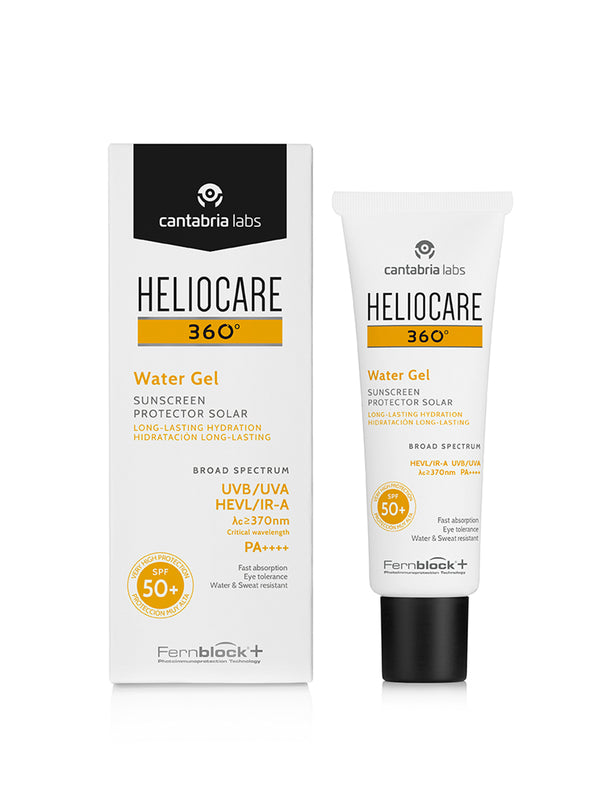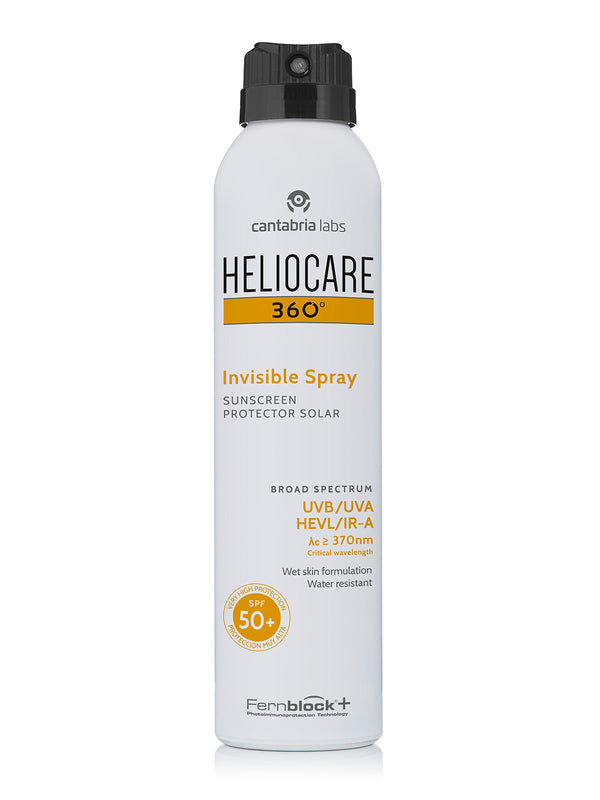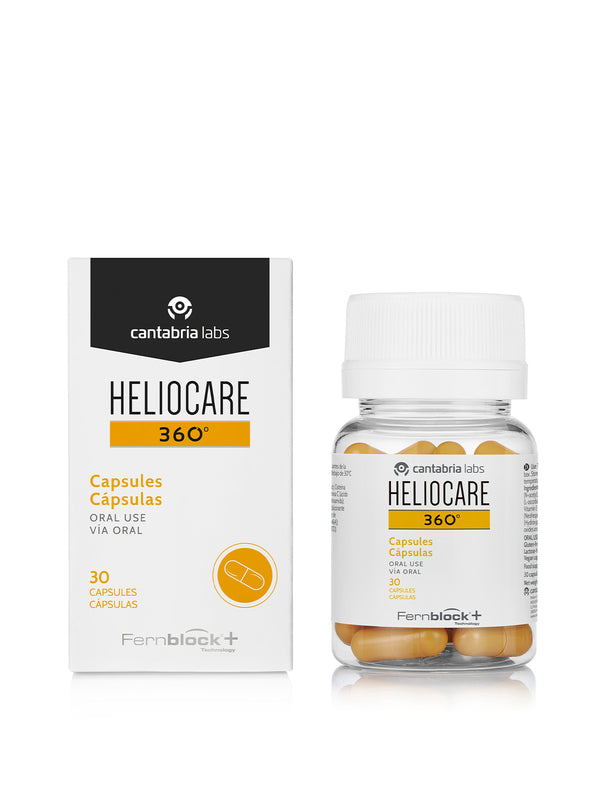5 reasons men should wear sunscreen daily
This International Men’s Health Week, we’re taking a look at the worrying facts behind sun protection amongst men, and the reasons why gents need to take their sun protection more seriously.
A survey has found that only 18% of men use sunscreen on their face, compared to 42% of women.1 This could be for a number of reasons. For instance, women may be more likely to apply sun protection every day because it’s part of their regular skincare and makeup routine. Men may not have the same motivation to take care of their skin and prevent signs of ageing. There may also be a misconception that sun protection is a beauty product, and therefore not ‘masculine’ or ‘manly’ (which is obviously not the case!).
But beyond skincare routines and signs of ageing, there is a darker side to sun exposure and UV damage. We know that when the sun’s rays hit unprotected skin, they can cause short-term damage to the surface, which we can observe in the form of burning resulting in redness, blisters and potentially rashes such as Polymorphic Light Eruption as a result of sun sensitivities. But deep within the skin, UV radiation reaches our skin cell DNA, which can lead to genetic mutations, and in worst case scenarios, the onset of skin cancer. This is especially concerning for men, as they are less likely to seek medical advice for any changes in the skin, such as a new lump, a blemish that won’t heal, or a changed mole.
If you’re a man who regularly skips sun protection, or if you’re concerned about the sun protection habits of the men in your life, read on and share these facts amongst your friends and family. Here are five key reasons why men need to wear high-level, broad-spectrum sun protection every single day throughout the summer months and beyond:
1. Men are generally more exposed to the sun
It’s common for men to have more exposed areas of skin, especially in the summertime. Men of a certain age will typically have less hair coverage on the scalp, which means the sun’s rays can reach the scalp, ears and back of neck. Other commonly missed areas of skin include the eyelids, lips and feet. When the weather really heats up, men are also more likely to whip off their T-shirts and go topless, leaving the shoulders, back and chest exposed and more vulnerable. Men are also typically more likely to have jobs which expose them to the elements and intense or long periods of sun exposure on a daily basis, such as gardeners and construction workers.
2. Men’s skin is potentially more vulnerable
Some researchers believe that male skin is more at-risk of sun damage because it is thicker, less fatty, and contains more collagen and elastin fibres.2 These features are believed to make it more susceptible to UV damage. Furthermore, research has found that female skin is better at repairing damage.
3. Sweating can compromise protection
During the spring and summer months, most people spend more time outside. We’re also more likely to get hot and sweaty. This is particularly relevant to men, as research has found that men enjoy more hours of leisure time,3 suggesting they partake in more outdoor sports and activities.
Whilst women have just as many active sweat glands as men, men produce more sweat per gland than women. Exposure to water and increased sweating can compromise the effectiveness of your sunscreen, so it’s important that you are adequately protected by using a high-factor SPF that is sweat and water-resistant. It’s also important to reapply regularly (every two to three hours) during intense periods of exposure and after swimming, exercising, or towelling the skin.
It is a common misconception that sun protection affects the natural sweating process, leading to discomfort. In fact, sunscreen does not have any impact on skin temperature or sweat evaporation, and people should continue to use sunscreen during sports and activities.4
4. Skin cancer is more common and can be more fatal in men
For men in the UK, melanoma is the 6th most common cancer. It is thought to affect 1 in 36 men, with approximately 8,400 new cases each year. The survival rate for melanoma skin cancer is higher for female than for males; statistics show around 1,400 men in the UK die from melanoma every year, compared to 980 women.5
In terms of non-melanoma skin cancer, there are approximately 67,500 cases in women each year, compared to 88,500 new cases in men. Twice as many men die from non-melanoma skin cancer each year (600 male deaths, compared to 310 female deaths).6 These concerning statistics demonstrate just how important it is for men to protect their skin from the sun’s rays and keep a close eye on any changes in the skin.
5. Everyone deserves healthy skin
UVA radiation is present all year round and is one of the leading causes of premature skin ageing, fast-tracking the natural ageing process by breaking down collagen and elastin, diminishing hyaluronic acid production, slowing skin cell renewal, and causing hyperpigmentation. By applying a high-level, broad-spectrum sun protection every single day, we can all help to protect our skin and prevent premature skin ageing. Not only will this help to prevent skin cell DNA damage, genetic mutations and the development of skin cancer, but it will keep the skin looking and feeling youthful for longer.
Heliocare 360° for men?
Heliocare 360° is for everyone, for every day. With products for all skin types and various finish preferences, there’s something for the whole family, including daily sunscreens for the face, sunscreens for the body, a pediatrics range for the kids, and supplements to help boost skin health from within.
Heliocare 360° offers the very best daily defence against the sun and daylight, with high-level, broad-spectrum protection, and additional skin-loving ingredients that help boost skin health and prevent premature skin ageing – including the supercharged antioxidant Fernblock and DNA repair enzymes. Its light, non-comedogenic formulas, are suitable for daily use as part of anyone and everyone’s daily skincare routine.
Popular choices in the Heliocare 360° range for men, include the Heliocare 360° Water Gel SPF50+ for daily facial sun protection. This fast absorbing, light gel dries with an invisible finish and provides advanced hydration and skin protection. The Heliocare 360° Invisible Spray SPF50+ is also a great option for the body, with its light aerosol spray making it easy to reach those hard-to-reach places. Its formula is water and sand-resistant and effective on wet skin – perfect for those beach holidays in the sun!
Another great choice to add to your daily regime is the Heliocare 360° Capsules – a supplement designed for use alongside your topical sunscreens to help boost skin health and provide additional protection against free radical damage caused by exposure to UVA, UVB, visible light and infrared-A. So, whether you’re heading to the beach, playing outdoor sports, or generally wanting to help keep your skin healthy, then the Heliocare 360° Capsules are ideal for use as a skin health supplement alongside your Heliocare 360° topical sunscreen. Clinical studies have shown that the use of Heliocare supplements can help prevent and reduce Polymorphic Light Eruption in sun sensitive skin.7
In the article

- For dry, dehydrated, or normal skin
- Suitable for Fitzpatrick skin types I-VI
- SPF50 & PA++++
- Invisible, satin finish

- For 360° body protection
- Suitable for Fitzpatrick skin types I-VI
- Water resistant
- Effective on wet skin

- For all skin types including sensitive and sun-sensitive skin
- Additional protection from within
- For periods of high sun exposure
- Boosts skin health
References:
1 Holman, D.M., Berkowitz, Z., Guy, G.P., Hawkins, N.A., Saraiya, M. and Watson, M. (2015). Patterns of sunscreen use on the face and other exposed skin among US adults. Journal of the American Academy of Dermatology, [online] 73(1), pp.83-92.e1. doi:https://doi.org/10.1016/j.jaad.2015.02.1112.
2 www.aad.org. (n.d.). Melanoma strikes men harder. [online] Available at: https://www.aad.org/public/diseases/skin-cancer/types/common/melanoma/men-50.
3 www.ons.gov.uk. (2018). Men enjoy five hours more leisure time per week than women - Office for National Statistics. [online] Available at: https://www.ons.gov.uk/peoplepopulationandcommunity/wellbeing/articles/menenjoyfivehoursmoreleisuretimeperweekthanwomen/2018-01-09.
4 Ou-Yang, H., Meyer, K., Houser, T. and Grove, G. (2017). Sunscreen formulations do not interfere with sweat cooling during exercise. International Journal of Cosmetic Science, 40(1), pp.87–92. doi:https://doi.org/10.1111/ics.12440.
5 Cancer Research UK (2015). Melanoma skin cancer statistics. [online] Cancer Research UK. Available at: https://www.cancerresearchuk.org/health-professional/cancer-statistics/statistics-by-cancer-type/melanoma-skin-cancer.
6 Cancer Research UK. (2018). Non-melanoma skin cancer statistics. [online] Available at: https://www.cancerresearchuk.org/health-professional/cancer-statistics/statistics-by-cancer-type/non-melanoma-skin-cancer.
7 González S et al. J Am Acad Dermatol. 2012;66(1):58-62.






